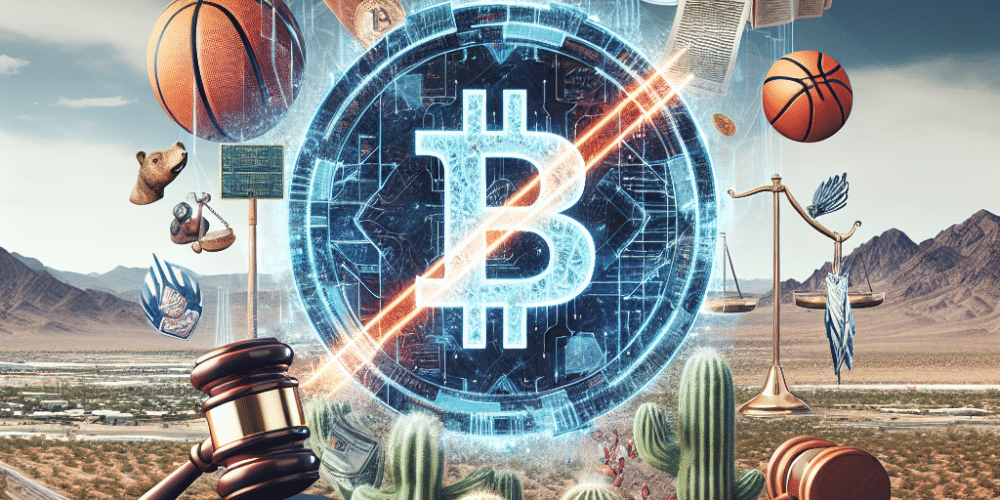On November 3, Crypto.com will cease its sports event prediction market operations in Nevada, following a pivotal federal court ruling against it. This decision represents a significant phase in the ongoing legal battle concerning the classification of sports-related prediction contracts under federal commodities law versus Nevada’s stringent gambling regulations.
The Nevada Gaming Control Board (NGCB) announced on Friday that Crypto.com has agreed to halt its sports event contracts for Nevada residents during its appeal process against a federal court ruling earlier this month. US District Judge Andrew P. Gordon denied Crypto.com’s request for a temporary order that would allow it to continue operations while contesting the state’s regulatory measures.
Crypto.com contends that its event contracts should be categorized as regulated “swaps” overseen by the Commodity Futures Trading Commission (CFTC), rather than being classified as bets under state gambling laws. In a noteworthy contrast, Judge Gordon granted this protection to another platform, Kalshi, but not to Crypto.com. Legal analysts suggest this discrepancy will be a focal point in the upcoming appeal.
The NGCB reiterated in its directive to Nevada licensees that prediction markets based on sports, entertainment, or political outcomes are considered wagering under state law, regardless of their presence on CFTC-regulated exchanges. Enforcement counsel Edward Dreitzer emphasized that contracts associated with events like professional sports matches, the World Series of Poker, or the Oscars qualify as betting activities. Only entities with a Nevada non-restricted gaming license and sportsbook authorization may provide such services.
This legal conflict underscores the increasing friction between prediction markets and state betting regulations. Dreitzer reiterated Nevada’s commitment to maintaining strict oversight of its gaming sector, underscoring the Board’s role in preserving industry integrity and ensuring compliance with laws designed to protect the state’s economic health and reputation.
Crypto.com’s suspension marks the first instance of a CFTC-regulated exchange ceasing operations in a state due to a jurisdictional dispute. Earlier this year, Robinhood experienced a similar situation, halting its sports-related contracts through Kalshi.
The legal tussle involving Crypto.com has drawn considerable attention as prediction markets and traditional sports betting frameworks begin to converge. Kalshi continues to operate under temporary court protection. Yet, the Nevada Resort Association and other industry entities warn that permitting unlicensed platforms to function like sportsbooks might disrupt long-established regulations.
Crypto.com remains resolute in its pursuit of an appeal through the Ninth Circuit Court of Appeals. The company maintains that its event contracts are legitimate financial instruments, not gambling mechanisms. Nevertheless, until a court decision is reached, Nevada residents will be unable to engage with the platform’s sports prediction markets.
A different perspective comes from critics who argue that the rise of prediction markets poses a challenge to traditional models of gambling regulation. They assert that as technology advances, the lines between financial trading and gambling continue to blur, necessitating a reevaluation of existing legal frameworks. This evolving landscape underscores the necessity for regulatory bodies to adapt swiftly to technological innovations and the changing nature of gambling.
Proponents of Crypto.com’s stance argue that the innovation in prediction markets could drive economic growth by offering consumers new ways to engage with events. They believe that such markets can coexist with traditional gambling operations under a framework that recognizes their unique nature. Furthermore, they suggest that these platforms could increase consumer choice and competition within the industry.
Conversely, opponents worry that expanding prediction markets could lead to regulatory challenges and potential exploitation. They caution that without robust oversight, consumers could face risks associated with unregulated markets. This viewpoint stresses the importance of maintaining stringent controls to protect consumers and ensure fair play within the industry.
The ongoing legal proceedings will likely serve as a landmark case, influencing how prediction markets are treated across different jurisdictions. As the appeal process unfolds, industry stakeholders, regulators, and legal experts will closely watch for its implications on the broader gambling and financial trading sectors.
In the coming months, the outcome of this legal battle could redefine the landscape of sports prediction markets and set precedents for how similar disputes are resolved in the future. As both sides continue to present their arguments, the case underscores the dynamic interaction between evolving market innovations and established regulatory frameworks.

















